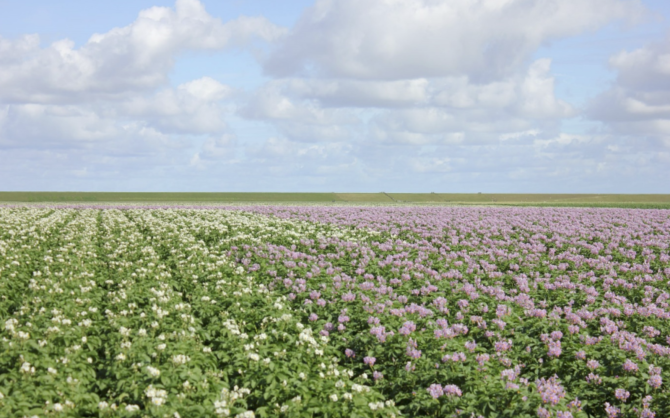Student information
Sustainable agriculture in Europe
Contact persons:
Renske Hijbeek: renske.hijbeek@wur.nl
Pytrik Reidsma: pytrik.reidsma@wur.nl
Martin van Ittersum: martin.vanittersum@wur.nl
The human population in Europe is stable or may even decrease, and is ageing. Net demand for food may decrease rather than increase, also since diets are likely to change towards healthier diets with some substitution of livestock products by plant-based products. Although Europe is a net exporter of agricultural products and has a role on the world market, its prime concern is not producing more, but maintaining high-quality production with much less impact on the environment. The European Green Deal captures the ambition of the European Union to make its economy sustainable and have zero net greenhouse gas emissions by the year 2050. The main objectives of European agriculture must be understood in that context. European agriculture (and broader, European food systems) have to become much cleaner, with less use of finite resources and avoiding negative impacts on biodiversity. At the same time there is political concern about rural development and the role of agriculture to support rural areas and the landscape. And the climate is changing which may work out positively for agricultural production in Northern Europe, while it will challenge Southern Europe. Throughout Europe extreme weather events will become more frequent and adaptation and resilience of agricultural systems will therefore be critical.

Sustainability and resilience of European farming systems
Agriculture in Europe is increasingly subject to a variety of stresses and shocks. These disturbances provide challenges and opportunities for farming systems and affect their ability to deliver private and public goods. Farming systems in the EU vary widely in terms of characteristics, production, actors involved and challenges faced. Dependent on the context, they function differently and show different degrees of sustainability and resilience, two complementary concepts. Sustainability can be defined as an adequate performance of all system functions across the environmental, economic and social domains. We define resilience of a farming system as its ability to ensure the provision of the system functions in the face of increasingly complex and accumulating economic, social, environmental and institutional shocks and stresses, through capacities of robustness, adaptability and transformability. A proper understanding of the local context and underlying mechanisms of resilience is essential for designing adequate and relevant strategies and policies. In a thesis subject you can investigate the sustainability and resilience of farming systems using participatory approaches, data analysis using statistical methods, and dynamic modelling.
Circular agriculture
A transition to a circular agriculture or circular food systems is regarded as one of the promising avenues to reduce environmental impact of agriculture, contribute to a green economy and move towards more healthy diets. Principles of a circular agriculture include using arable land primarily for human consumption, to avoid losses, re-use by-products while using animals for what they are good at, i.e. upgrading low-opportunity cost biomass. In thesis subjects you can investigate these principles and analysis the optimum hierarchical levels at which circularity should be developed: how local must cycles of nutrients and biomass be closed to achieve the lowest environmental impact and highest efficiencies? What are the best uses of crop residues and by-products and how can nutrients from the city be re-used? (see Theme 6). An MSc thesis can be model-based at different scales, investigating grassroot examples of circularity or use a more participatory approach.
Comparisons between organic and mainstream agricultural systems
Organic agriculture and other types of agriculture that avoid using external inputs come with lower local environmental impact, but also lower yields. This is true at single crop level, but even more so at systems level, as these types of agriculture depend on nutrients from animal manure and legume crops which require (additional) land. Hence to produce the same amount of food substantial extra land is needed. How much extra land is a relevant question, not only for the development of organic agriculture, but also for circular systems that rely on recycling of nutrients and aim to lower the use of mineral fertilisers. In thesis subjects you can investigate this yield gap at systems level and estimate other environmental performance criteria of organic and other alternatives to mainstream agriculture. Your thesis will be a combination of analysis of experimental and secondary data, together with model-based work.
Analysing yield variability for sustainable potato production
Improving the sustainability of European agriculture, also requires attention for specific crops. For example, in the Netherlands, potato is a major cash crop, and management can be improved to make production more sustainable. We use yield gap analysis to explain yield gaps and resource use efficiencies at crop and farm level (link with theme 4, 8 and 9). By disentangling yield gaps, they can be better explained, and management strategies and policies can be suggested. In thesis subjects you can analyse yield gaps and resource use efficiencies of potato, and possibly other crops, performing experiments, analysing data and using crop models. This includes assessing impacts of weather variability, and exploring impacts of climate change (link with theme 3). Collaboration with farmers and industry will ensure impact in practice.